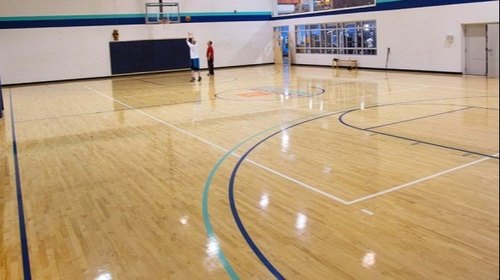Over the last few years, digital technology has revolutionized soccer camp organization and management. Due to this, soccer camps are no longer about passing a ball across the field. These advancements have helped in improving the performance of players, from recruitment and training to analysis. Consequently, they are making education more interesting and attainable. The following are some of the ways in which technology has changed soccer camps.
It allows virtual learning for players
Historical soccer camps included physical training, tactical drills, and field skill development. While these elements are significant, the introduction of the digital age has led to new innovations in soccer camps. VR and AR technologies are being applied to create virtual training environments today. In this way, players can practice in simulated game scenarios. This enables them to learn how to make snap judgments and become conscious of the space in a digital domain.
Improved communication
Digital technology has led to significant changes in the world of registration and communication. Those days are long gone when it was necessary to use paper forms and phone calls in order to sign up for soccer camps. On the other hand, parents and players can now register online to select their preferred sessions, followed by payment through digital methods. Doing so has streamlined the process for camp organizers and made it more convenient for participants and their families.
Furthermore, it has become simpler for coaches and organizers to send information using e-mail or SMS, as well as through social media. Thus, keep everyone in the picture and aware of what goes on at camp. Hence, it has resulted in the emergence of a much more efficient and integrated soccer camp society.
Effective tracking of players’ health
Due to the increase in technology development, the heart rates of players can now be monitored using devices such as GPS trackers and portable heart rate systems. These are wearable devices, and they are used to collect players’ data. Among these, the physical fatigue levels that players experience during training sessions and matches, as well as their movement patterns, can also provide useful information. This information can then be analyzed to determine what aspects are lacking and design training programs for the players based on their needs.
Players are now better assessed
In addition to other technological innovations, video analysis software has gained ground in soccer camps. It allows coaches to capture and analyze players’ performances, spot strengths or weaknesses in their gameplay, and provide pinpointed feedback for advancement. This tool has become indispensable for players seeking to sharpen their technical skills and tactical reading of the game. You can click here for more information on choosing the best soccer camp.
Aids in creating awareness
Social media has become an effective means of sharing the adventures and results that soccer campers have had. They are now able to produce engaging content beyond the live match, such as training highlights, player interviews, and so on. These can be shared from camp using social media, giving players an opportunity to demonstrate their skills before a wider audience of fellow soccer lovers.
To sum up, technology has created many beneficial changes in soccer camps. From better registration processes and more efficient communication to creative methods of training. One thing is very certain: digital technology has tremendously changed the entire
soccer experience.

















